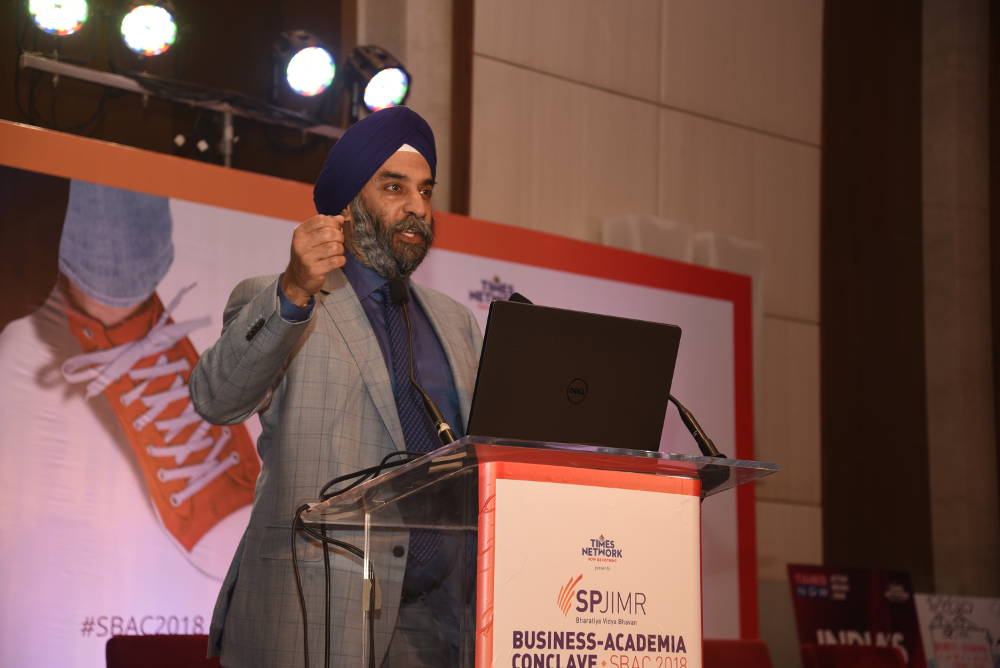What are the most compelling challenges businesses face right now and how ought it be dealt with? These were some of the questions that came up at the SP Jain Institute of Management and Research (SPJIMR) Business – Academia Conclave (SBAC) on January 20, 2018. It was curated and organised by SPJIMR and Founding Fuel.
SBAC 2018 was witness to deep conversations and lively discussions with some of the finest minds from India and other parts of the world in attendance and focused on how established corporations and agile startups are coming together to innovate.
This is Part 1 of a four-part series.
The four dimensions of thought leadership
In his opening address, Dr Ranjan Banerjee, the Dean of SPJIMR, delves into why innovation is needed in management education. The new generation expects to be managed and led differently, and we need a management theory ready for the digital world.
To create and disseminate ideas that shape the way practitioners think and act, you first need to understand current practice. This requires dialogue between industry and academia.
Dean Banerjee dwells on the four dimensions of thought leadership emerging out of Indian business schools that are anchored in a two-way flow of ideas between industry and academia:
1. Translation: Making academic research accessible to practitioners
2. Assimilation: Staying current with what’s happening in the field
3. Co-creation: Surfacing new trends together
4. Transformation: Management philosophy—thinking about management itself.
Watch his opening address here:
Dancing with startups
The much acclaimed Prof. Mohanbir Sawhney of the Kellogg School of Management in his keynote makes the case that when corporations and startups collaborate, you get more than a sum of the parts.
His arguments are compelling. Corporations must understand “the smartest people don’t work for you.” And large companies have no monopoly on expertise.
Corporations need to adopt “connected” innovation—a co-creation oriented community process that allows for innovation in ways and at a scale that wasn't possible before. “The thinking needs to change from ‘the lab is my world’ to ‘the world is my lab’,” he points out.
To do that well, you need to understand what both parties are looking for. What are the goals? What are the modes to collaborate? How do you go about it?
To do all this, an innovation ecosystem must be created. Each node in this ecosystem must be managed because it has entrepreneurs, venture capitalists, private equity, universities and research institutes, startup incubators, and innovation marketplaces.
Post his talk, R Gopalakrishnan, Executive-in-Residence, SPJIMR, engages with Prof. Sawhney in a conversation and point outs: “Don’t get comfortable. Talk to customers.”
Transforming the soul of the enterprise
Agile start-ups, large firms and a jugalbandi for innovation


